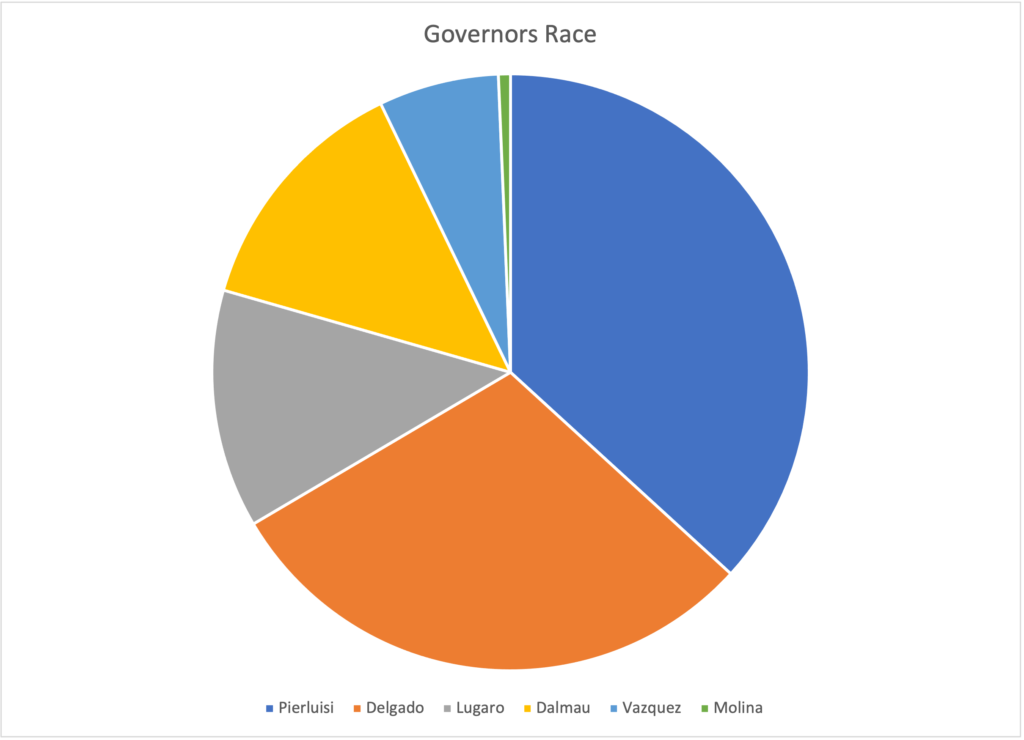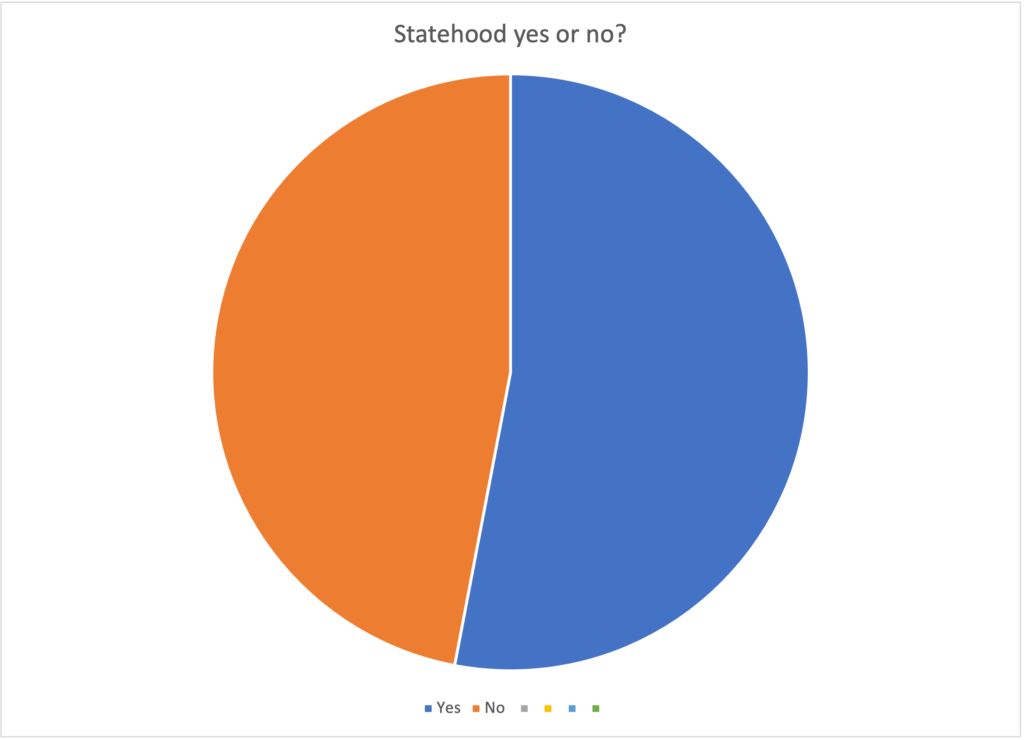Suppose you participate in an election and you don’t like the outcome? You can stamp your feet or pledge that your side will do better next time — or you can misrepresent the results.
The governor’s race
Consider the governors race in Puerto Rico in 2020. The data is shown below in chart form. We can see that the race between Pierluisi and Delgado was close.

Close races make people have feelings, but they don’t affect the outcome of the race. For example, in the 2020 U.S. presidential race, Libertarian Jo Jorgenson got 485,759 votes, the best the Libertarian Party has done in many years. This fact has no effect on the close race between Biden and Trump, which Biden won.
The fact that third party candidates got votes does not affect the outcome of the governors race, either. Far more people chose Pierluisi than chose Lugaro or Dalmau. If there had been fewer candidates, the numbers would have been different, but this is still a clear win for Pierluisi.
As is common in a race with many candidates, no one candidate got more than 50% of the vote. But some observers want you to see this differently. They want you to see Pierluisi’s blue segment of the graph as “YES” for statehood and all the others as “NO” against statehood.
In fact, Pierluisi gained 427,016 votes. This was the largest number for any gubernatorial candidate. He won.
But 655,505 voted for statehood. That means that some people voted for statehood but did not vote for Pierluisi.
In other words, it is not true that everyone who chose another candidate was thereby voting against statehood.
Imaginary voters
When someone votes, we can see the option they chose. If they don’t vote, we don’t know what they would have chosen if they had voted.
Obviously, anyone who guesses that those voters who did not choose Pierluisi also did not choose statehood is wrong. 228,489 more people voted for statehood than voted for Pierluisi. We therefore know that at least 228,489 statehood supporters voted for other candidates. It is therefore demonstrably false to say that 67% of the voters voted against statehood.
If only we could see how many voters actually chose statehood! Wait — we can.

53%, a clear majority, voted for statehood. It is not possible to see this chart as showing 67% voting against statehood.
Those who want to claim that two thirds of Puerto Ricans voted for statehood have another idea.
Voter turnout was just about the same for the referendum as for the general election. It was comparable to the turnout in 2016, before Hurricane Maria. The voter rolls have not been updated.
But those who want statehood to have lost the referendum say that just half of the eligible voters showed up. Just half showed up in 2016, too. We have no actual current figures for registered voters, as it happens. But we are supposed to imagine that half the voters showed up. Half the registered voters usually turn upon for U.S. presidential elections, so it is possible that half the potential voters actually voted. Let’s imagine that this is true.
Now you must also imagine that every voter who failed to show up would have voted against statehood. There is absolutely no evidence for this. Statehood has won the last three plebiscites. It invariably shows up as the top choice in polls, too.
If we imagine that every person who could have voted and didn’t is against statehood, though, you can claim that just 28% of Puerto Rican voters want statehood. There is no evidence that this is true. In fact, if we want to guess what non-voters might have chosen, then the voters would probably have been a fair sample of the potential voters. In that case, we can expect that 53% of those non-voters would have voted for statehood.
There is a lot of math involved in this, but there are also a lot of slippery claims. Common sense shows us that these claims do not add up. They are either demonstrably false, or made with no evidence at all.








No responses yet